Calling all aquarium hobbyists! Cardinalfish are anything but ordinary. These colorful cuties come with a surprising amount of personality, from their unique homes to their fascinating breeding habits. Let’s dive in and discover the world of cardinalfish, exploring their hidden habitats, impressive lifespans, and what they like to munch on.
Content Table
We’ll crack the code on the stunning Banggai cardinalfish breeding, and share some mind-blowing facts that prove these little fish are superstars of the sea.
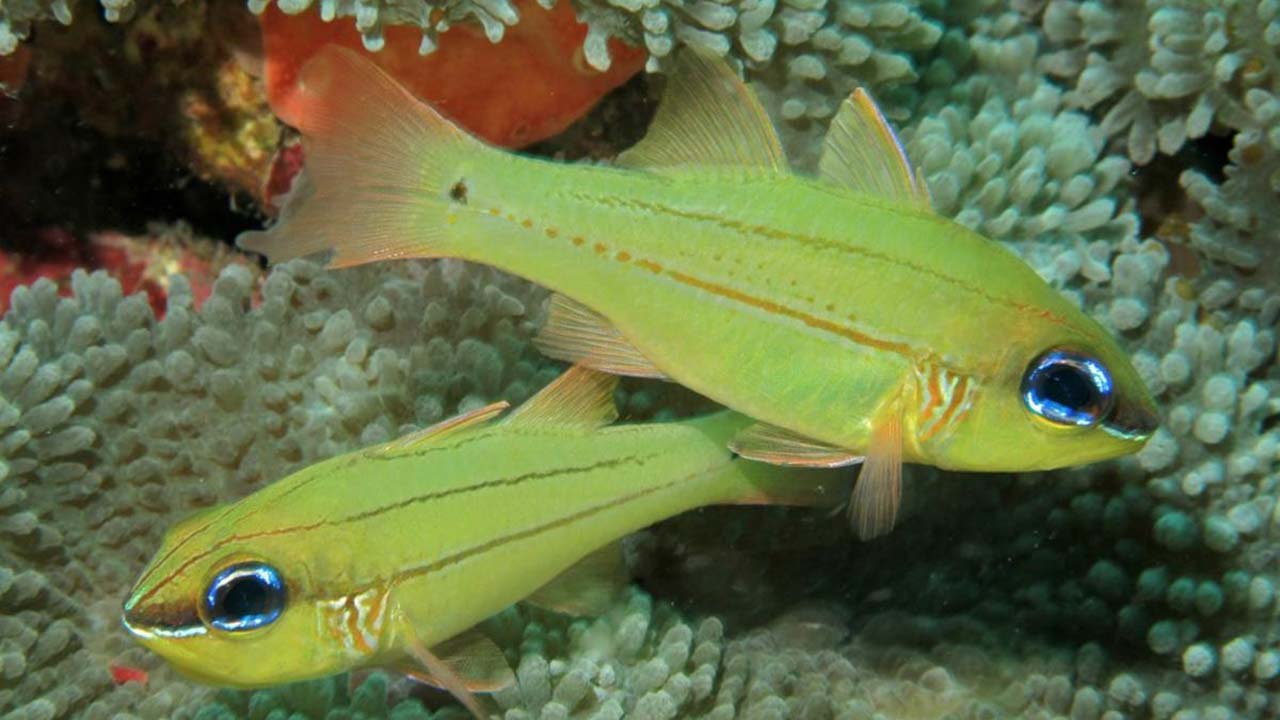
cardinalfish
Cardinalfish Species
The cardinalfish the Apogonidae is a large family of ray-finned fish which includes over 370 species. They are mainly found in the warm seawater of the Atlantic, Indian, and Pacific Oceans, but some species can transfer into brackish water and only a few can survive in freshwater habitats (e.g., the Glossamia).
These flashy fish are usually the smaller species, averaging about 4 inches in size. They are very well known for their big mouths and the division of their dorsal fin into two halves. Cardinalfish features an unlimited assortment of colors, which explains its popularity with many aquarium owners.
1. Habitat
Cardinalfish are incredibly adaptable and can be found in a variety of marine environments, including:
| Coral reefs | Mangrove forests | Brackish estuaries (for a few species) |
| Seagrass beds | Sandy and rubble bottoms |
Demersal fish are their specific preference by nature: they like to stay and feed near the bottom of the seafloor. Some species form social groups, while others are quite territorial.
2. Origin
The cardinalfish is one of the species dated to over millions of years ago. Paleontological data point to the fact that they have been around in the oceans no later than the Eocene epoch, which began about 56 million years ago.
3. Lifespan
The lifespan of cardinal fish, varying among species, can be from 5 to 10 years in a good aquarium. Some research reveals that some species can even reach 15 years of age in captivity!
4. Diet
Cardinalfish are opportunistic carnivores. Their major source of food is tiny crustaceans: mysid shrimp, copepods, and plankton. They’re nighttime feeders and rely on their great eyesight to hunt for prey at night.
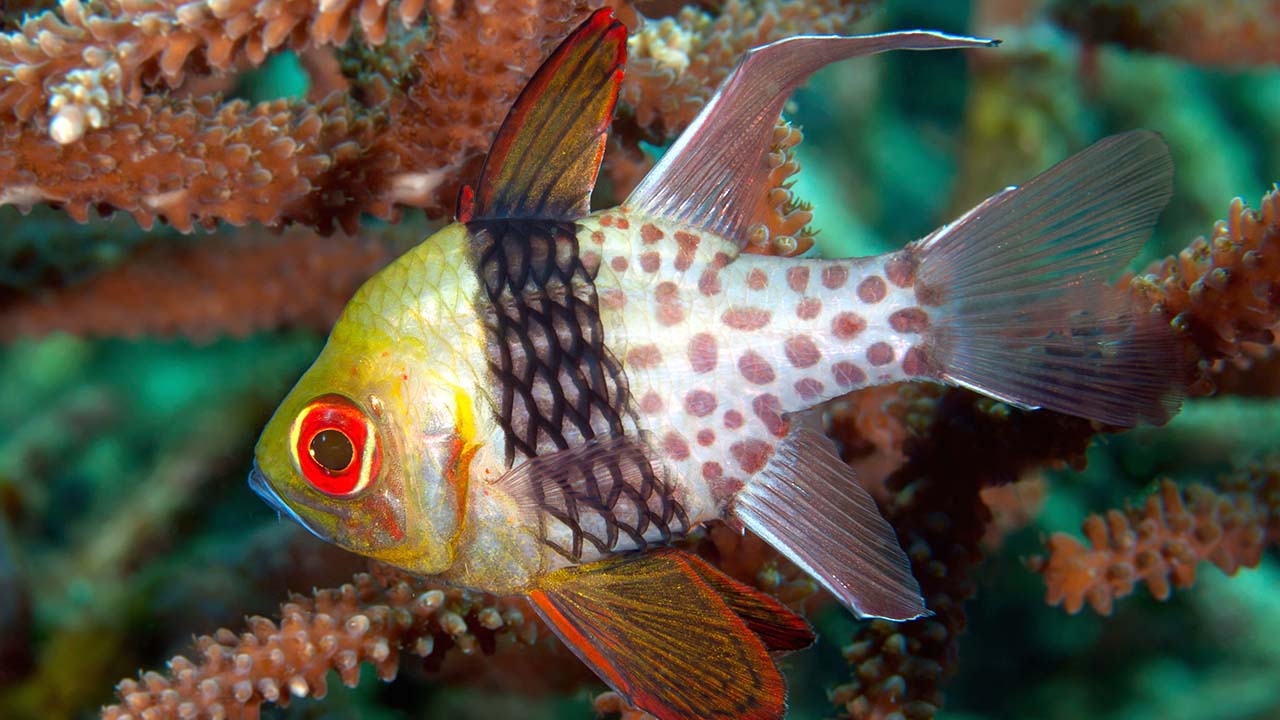
Pajama Cardinalfish
Banggai Cardinalfish Size and Growth
The Banggai cardinalfish (Pterapogon Kauderni) is a captivating member of the cardinalfish family, known for its striking black and white stripes and fascinating social behavior. But don’t let their diminutive size fool you! These little fish pack a punch when it comes to personality and growth.
Size
Banggai cardinals are categorized as relatively fast growers, and they grow faster when provided with a healthy diet and an ideal water environment. With optimal caring of them, they can be up to 5.5 centimeters (2.2 inches) long during the sixth month and 6.5 centimeters (2.6 inches) in length during the first year.
Here are some key factors that can influence their growth rate:
- Diet: A nutritious diet rich in live prey like copepods and mysid shrimp will promote healthy growth.
- Water Quality: Maintaining pristine water conditions with stable temperatures with heaters, pH, and proper filtration is crucial for optimal growth.
- Stress: Stress from overcrowding, tank mates, or poor water quality can negatively impact growth.
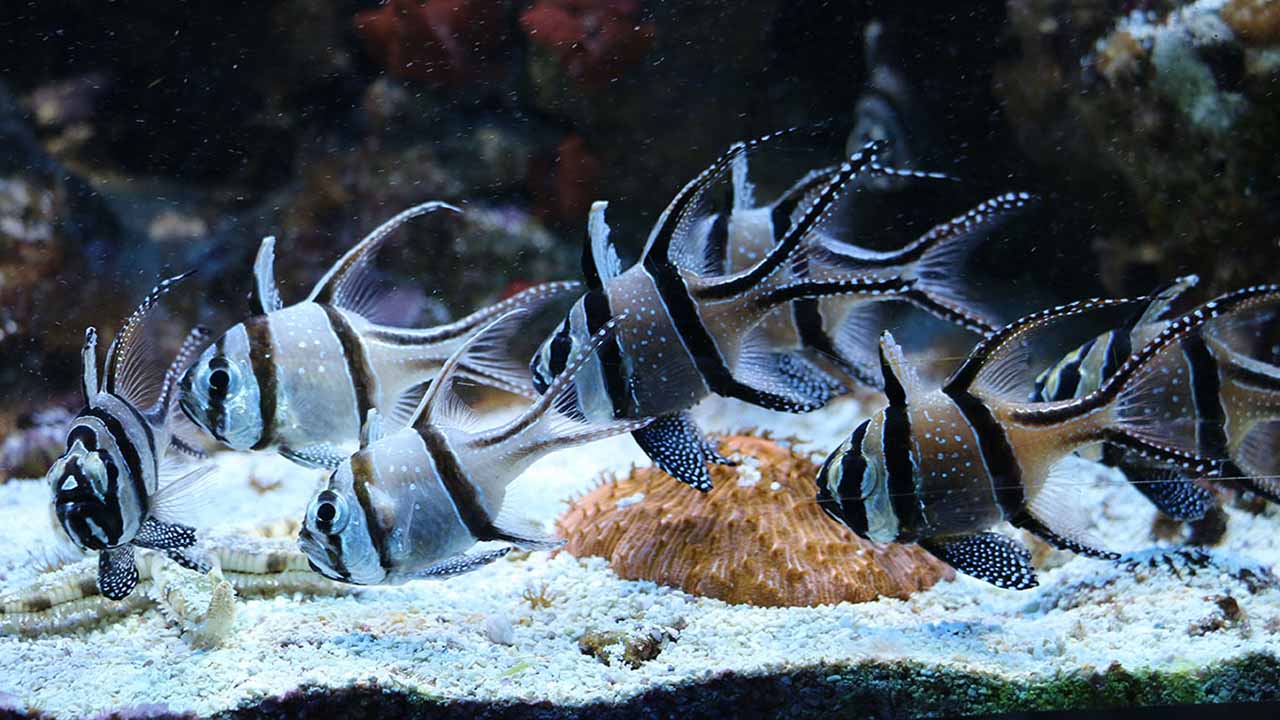
banggai cardinalfish size
How to Breed Banggai Cardinalfish
Banggai cardinalfish are fascinating fish to breed in a home aquarium. Unlike many fish that scatter eggs, the male Banggai cardinalfish is a mouth brooder, meaning he fertilizes the eggs and carries them in his mouth until they hatch.
Here are some ways and tips for breeding Banggai cardinalfish:
1. Setting up the tank
- A mature tank of at least 30 gallons is recommended for a breeding pair.
- The tank should be well-established with plenty of live rock for the fish to feel secure.
- Water parameters should be stable with a temperature of 78-82°F (25-28°C), pH of 8.1-8.4, and salinity of 1.020-1.025.
- Provide some gentle water flow and low lighting.
2. Selecting breeding stock
- It’s best to start with a group of 5-6 juvenile Banggai cardinalfish and let them grow up together. This will allow them to form compatible pairs naturally.
- A healthy and mature pair (around 1-year-old) is more likely to breed successfully.
- Sexing Banggai cardinalfish can be difficult, but there are a few subtle differences. Females tend to have a fuller body, while males may have a slightly pointed jaw.
3. Feeding for breeding
- Provide a varied diet of high-quality foods, including live brine shrimp, mysis shrimp, and copepods. This will help ensure the fish are in good condition for breeding.
- Feed the fish heavily before spawning to encourage egg production.
4. Breeding process
- Once a pair has formed, they will go through a courtship ritual. The male will flare his fins and display them to the female.
- The female will release a clutch of eggs, which the male will fertilize and then take into his mouth.
- The male will carry the eggs for 2–3 weeks, nurturing them until they hatch.
- During this time, it’s important to maintain stable water conditions and avoid disturbing the male.
5. Raising the fry
- After the fry hatch, the male will release them into the tank.
- The fry is very small and will need infusoria or rotifers as their first food.
- You can set up a separate rearing tank for the fry, or you can let them mature in the main tank if there are plenty of hiding places and copepods for them to eat.
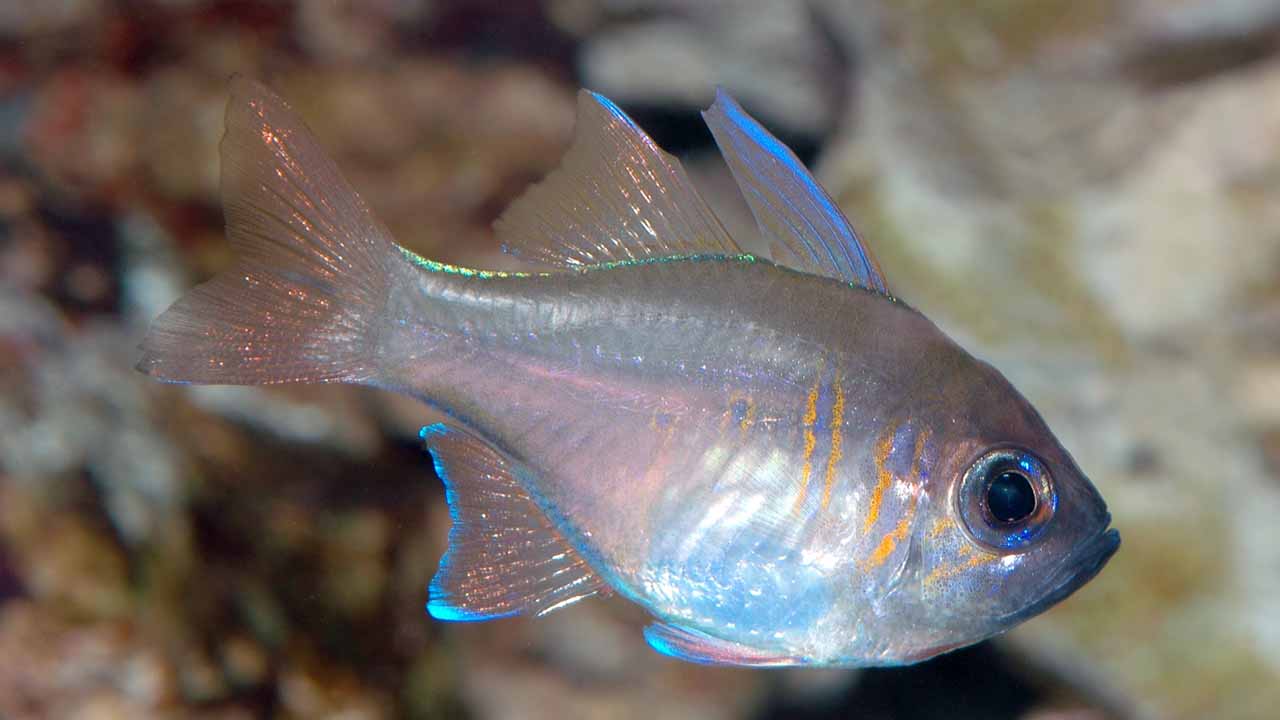
Exploring cardinalfish
Amazing things About Banggai Cardinalfish
The Banggai cardinalfish is a small but amazing fish with some pretty cool features. Here are some interesting facts about them:
- Each Banggai cardinalfish has its fingerprint dot pattern, although they might look quite similar, they are never the same fish! So, they can identify each other.
- In contrast to other fish that usually scatter their eggs, Banggai cardinal fish are oral brooders. He carries its eggs in his mouth and then protects them from predators until they hatch.
- Specifically, Banggai Island Indonesia is the natural habitat where these fish are primarily found. They used to be found only in New Zealand, but an aquarium trade has made them a part of other places all over the globe.
- Banggai cardinalfish usually choose a large anemone as their habitat. In return for shelter and food, they protect the anemone from predatory fish or damage to the tentacles by providing vigilance and warning. Anemone, in addition, serves as a shelter and prevents the fish from being harmful to them. In exchange, the fish clean and keep the anemone parasite-free.
- The Banggai cardinalfish is a fish that just likes to stay and chill at depth levels very close to the reef’s bottom.
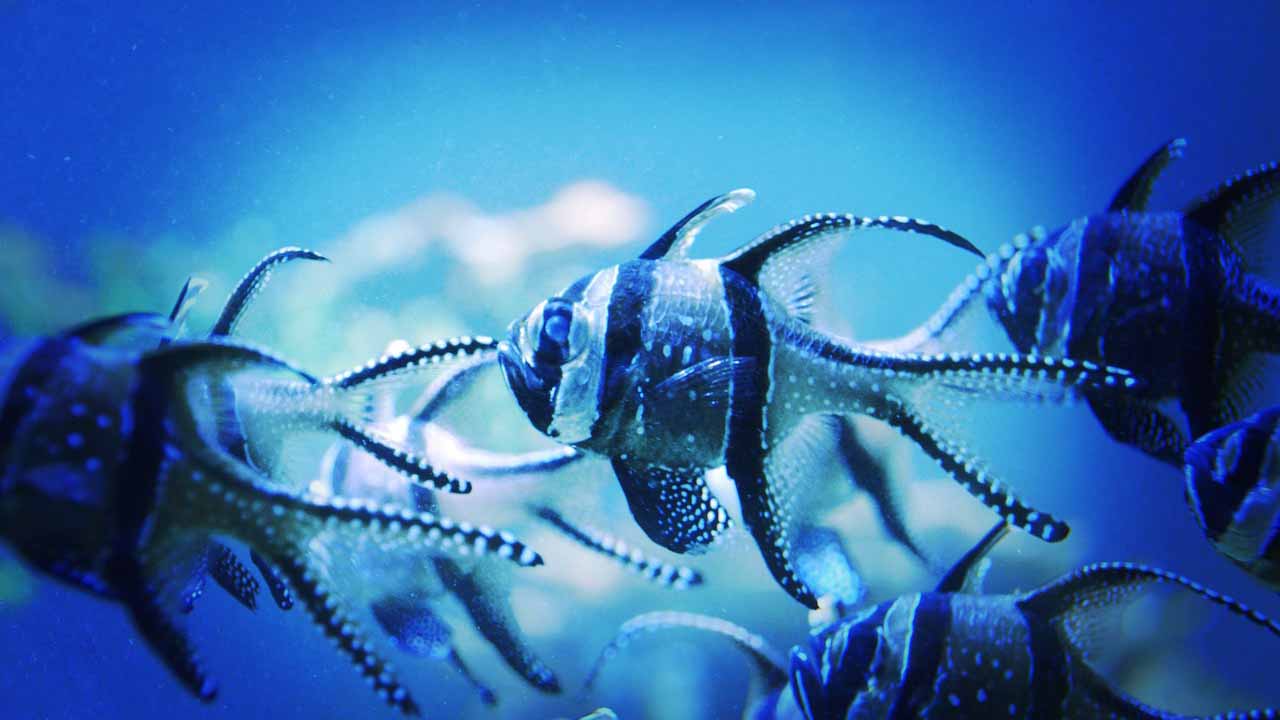
Banggai cardinalfish breeding
In Summary
The Banggai cardinalfish is a fascinating fish with great looks and curious behavior. It is prevalent in the aquarium setting. They are the mouthbrooders as the males carry the eggs in their mouth until they hatch. This particular fish is mainly found around the Banggai Islands of Indonesia, where it forms close ties with anemones. The Banggai cardinalfish’s vibrant colors and moderate maintenance needs might be an excellent addition to your fish tank’s inhabitants.

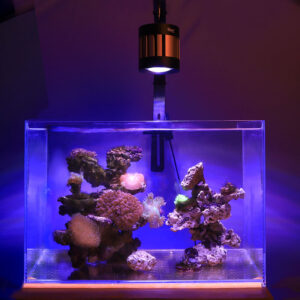
Leave a comment